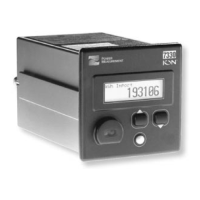-2863(9'8-32
The standard 7330 ION has two RS-485 communications ports and one infrared
port. These ports are capable of data rates up to 19,200 bps. The 7330 ION
infrared port on the front panel is compatible with an ANSI C12.13 Type II
magnetic optical communications coupler. It can be used to communicate real-
time measurements via ION, DNP 3.0, or Modbus protocols.
The RS-485 and infrared ports can communicate simultaneously.
6)&3TXMSR
Adding the Relay Extension Board (REB) option can enhance the functionality
of the onboard digital outputs. The REB option includes a four-position Grayhill
module rack and a 100-240VAC to 5VDC power supply. Grayhill modules are
ordered separately.
9WMRKXLMW+YMHI
This User’s Guide is directed at three types of user: the typical user or operator,
the system administrator, and the advanced user. You might not fit into any of
these groups directly, or perhaps you are both an operator and an
administrator. These user classifications are intended to make this guide easier
to navigate.
♦
8]TMGEP9WIVSV3TIVEXSV
Most users will simply want to display the data provided by the factory-
configured 7330 ION. These users want fast access data through the front
panel, PEGASYS software, PowerView software or a third-party protocol
such as Modbus or DNP.
Chapter 2 addresses the needs of the typical user who wants to get data out
of the 7330 ION. This chapter assumes that the reader is not concerned with
how the device functions; instead the focus is on accessing and interpreting
the data provided.
♦
7]WXIQ%HQMRMWXVEXSVSV1EREKIV
Some users will need to make minor adjustments so that their devices “fit”
their power systems: communications settings, demand sub-intervals and
other parameters may need to be set before the 7330 ION’s setup is
complete. These users will use the front panel, PowerView software or
PEGASYS software to change settings in the device’s operating software.
(PEGASYS is highly recommended for device configuration.)
Chapter 3 is directed at the user who wants to get more out of the 7330 ION
by making adjustments to its factory-configured functionality. This chapter
focuses on the different configuration changes that can be made with
minimal effort, and what effects each type of setting will have. Very few
details about the device’s internal operation are provided.

